Effective Ways to Eliminate Bugs and Pests on Citrus Trees: A Comprehensive Guide
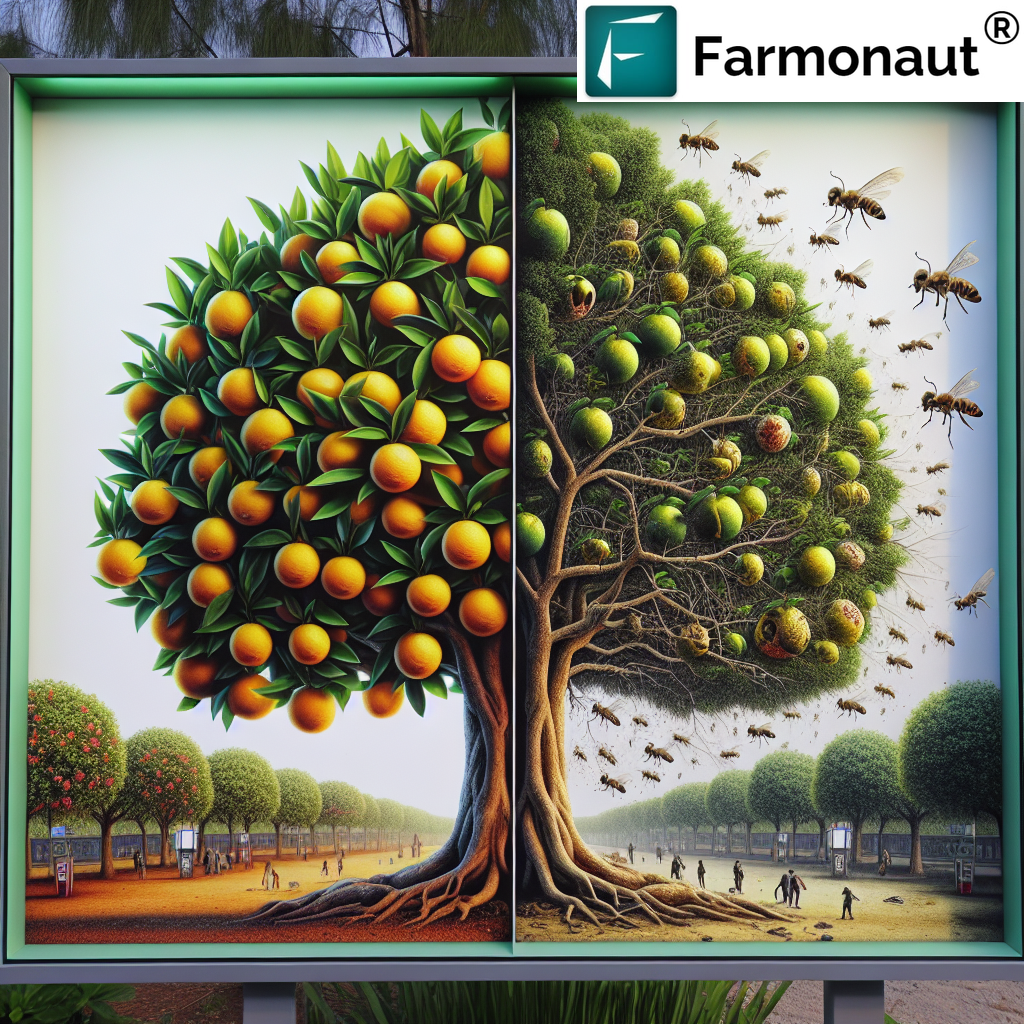
As agricultural technology experts at Farmonaut, we understand the importance of maintaining healthy citrus trees. One of the most common challenges faced by citrus growers is dealing with bugs on citrus trees. In this comprehensive guide, we’ll explore effective methods on how to get rid of bugs on citrus trees and how to get rid of pests on citrus trees. Our aim is to provide you with valuable insights that combine traditional practices with modern agricultural technology.
Understanding the Impact of Bugs and Pests on Citrus Trees
Before we delve into the solutions, it’s crucial to understand the significance of pest control in citrus cultivation. Bugs and pests can cause severe damage to citrus trees, affecting both the quantity and quality of fruit production. Some common issues include:
- Leaf damage and defoliation
- Stunted growth
- Reduced fruit yield
- Transmission of plant diseases
- Weakened overall tree health
At Farmonaut, we recognize the importance of early detection and prevention in managing these issues effectively. Our satellite-based crop health monitoring system plays a crucial role in identifying potential pest infestations before they become severe.
Common Bugs and Pests Found on Citrus Trees
To effectively combat bugs on citrus trees, it’s essential to identify the most common culprits. Here’s a list of pests frequently found in citrus orchards:
- Citrus Leafminer
- Asian Citrus Psyllid
- Citrus Whitefly
- Scale Insects
- Citrus Mealybug
- Citrus Rust Mite
- Mediterranean Fruit Fly
- Citrus Thrips
- Orange Dog Caterpillar
- Citrus Red Mite
Each of these pests requires specific strategies for control and elimination. Let’s explore some general and targeted approaches to get rid of bugs on citrus trees.
General Strategies to Get Rid of Bugs on Citrus Trees
When it comes to how to get rid of bugs on citrus trees, a multi-faceted approach is often the most effective. Here are some general strategies that can help in managing a wide range of pests:
1. Regular Monitoring and Inspection
Consistent monitoring is crucial for early detection of pest infestations. At Farmonaut, we leverage advanced satellite technology to provide real-time insights into crop health. Our Farmonaut app allows farmers to access up-to-date information about their citrus orchards, enabling them to spot potential pest issues quickly.
2. Maintaining Tree Health
Healthy trees are more resistant to pest infestations. Ensure proper irrigation, fertilization, and pruning practices. Our AI-powered advisory system, Jeevn AI, provides personalized recommendations for optimal tree care based on real-time data and expert knowledge.
3. Encouraging Natural Predators
Promoting biodiversity in your orchard can help control pest populations naturally. Beneficial insects like ladybugs, lacewings, and parasitic wasps can be valuable allies in your pest management efforts.
4. Implementing Physical Barriers
Use physical barriers such as sticky traps, tree wraps, or netting to prevent pests from reaching your citrus trees. These methods can be particularly effective against crawling insects and some flying pests.
5. Practicing Good Orchard Hygiene
Regularly remove fallen leaves, fruit, and other debris from the orchard floor. This practice helps eliminate potential breeding grounds for pests and reduces the risk of disease transmission.
Specific Techniques to Get Rid of Pests on Citrus Trees
Now, let’s explore some targeted approaches for how to get rid of pests on citrus trees, focusing on some of the most common and problematic insects:
1. Citrus Leafminer Control
- Prune affected leaves and shoots
- Apply neem oil or horticultural oils
- Use pheromone traps to disrupt mating cycles
- Encourage natural predators like parasitic wasps
2. Asian Citrus Psyllid Management
- Implement quarantine measures for new plant material
- Use yellow sticky traps for monitoring and control
- Apply systemic insecticides as a preventive measure
- Promote biological control through predatory insects
3. Scale Insect Eradication
- Prune heavily infested branches
- Apply horticultural oils or insecticidal soaps
- Use systemic insecticides for severe infestations
- Introduce natural predators like lady beetles
4. Citrus Mealybug Control
- Remove and destroy heavily infested plant parts
- Apply neem oil or insecticidal soaps
- Use systemic insecticides for severe cases
- Introduce natural predators like mealybug destroyers
5. Citrus Rust Mite Management
- Monitor humidity levels and adjust irrigation accordingly
- Apply sulfur-based miticides
- Use horticultural oils as a preventive measure
- Implement proper pruning to improve air circulation
These targeted approaches, combined with the general strategies mentioned earlier, can significantly reduce pest populations in your citrus orchard.
The Role of Technology in Pest Management
At Farmonaut, we believe that technology plays a crucial role in modern pest management strategies. Our satellite-based solutions offer several advantages in the fight against bugs on citrus trees:
1. Early Detection
Our satellite imagery can detect subtle changes in vegetation health, often indicating pest infestations before they become visible to the naked eye. This early warning system allows farmers to take prompt action, potentially preventing widespread damage.
2. Precision Application
By providing detailed maps of crop health variations across the orchard, our technology enables targeted application of pest control measures. This precision approach not only improves effectiveness but also reduces the overall use of pesticides, promoting more sustainable farming practices.
3. Data-Driven Decision Making
Our AI-powered advisory system, Jeevn AI, analyzes satellite data, weather patterns, and historical information to provide customized pest management recommendations. This data-driven approach helps farmers make informed decisions about when and how to implement control measures.
4. Monitoring Treatment Efficacy
After implementing pest control measures, our satellite monitoring system can track the recovery of treated areas. This feedback loop allows farmers to assess the effectiveness of their interventions and make necessary adjustments.
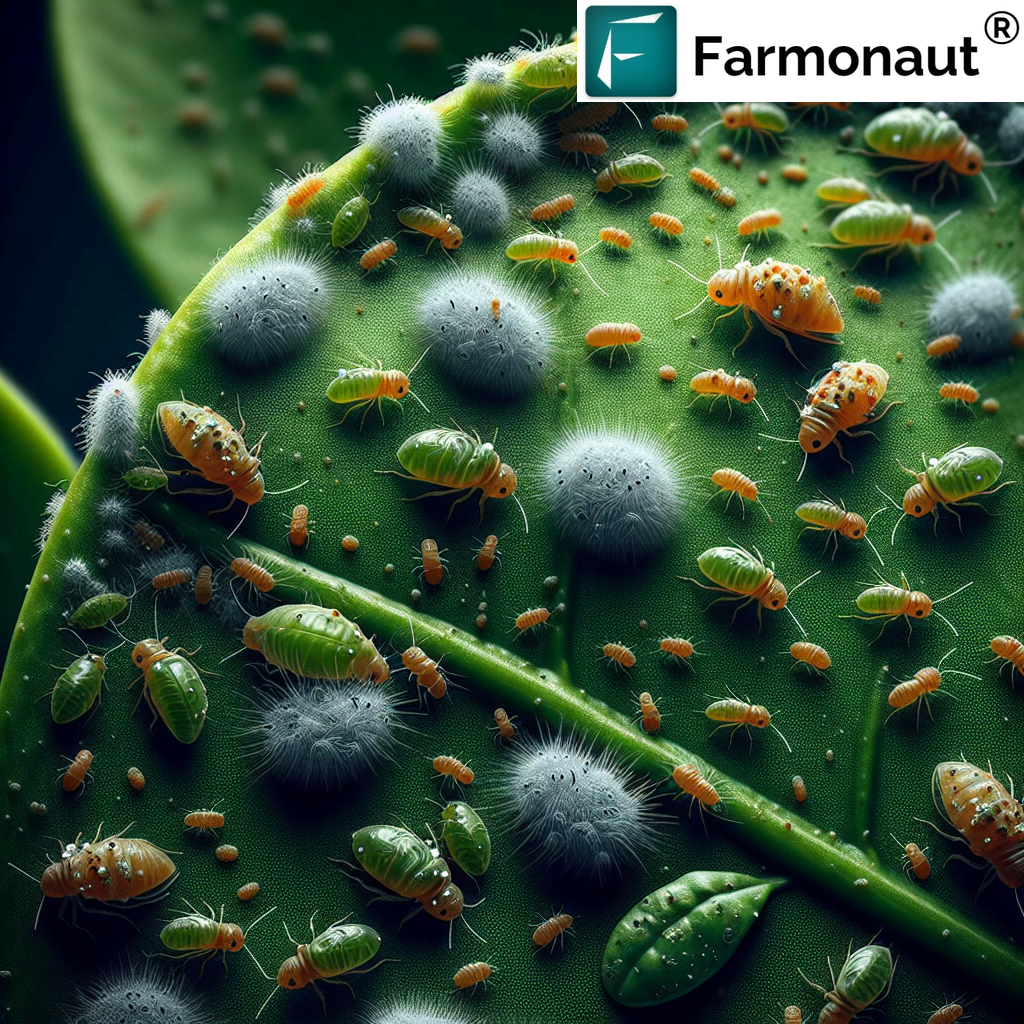
Comparing Farmonaut Satellite System with Drone and IoT-based Farm Monitoring
While drones and IoT devices have their place in modern agriculture, the Farmonaut Satellite System offers unique advantages for pest management in citrus orchards. Here’s a comparison table:
| Feature | Farmonaut Satellite System | Drone-based Monitoring | IoT-based Monitoring |
|---|---|---|---|
| Coverage Area | Large-scale (entire orchards) | Limited by flight time and regulations | Limited by sensor placement |
| Frequency of Data Collection | Regular (every few days) | As needed, weather-dependent | Continuous, but localized |
| Initial Setup Cost | Low (subscription-based) | High (equipment purchase) | Moderate to High (sensors and network) |
| Maintenance Requirements | Minimal (cloud-based system) | Regular (equipment maintenance) | Moderate (sensor replacement, network upkeep) |
| Data Analysis Capabilities | Advanced (AI-powered insights) | Varies (dependent on software) | Good (real-time data, but limited scope) |
| Scalability | Highly scalable | Limited by operational constraints | Scalable, but can be costly |
| Weather Independence | High (can penetrate cloud cover) | Low (affected by wind, rain) | Moderate (some sensors weather-sensitive) |
As you can see, the Farmonaut Satellite System offers comprehensive coverage, regular data collection, and advanced analysis capabilities, making it an excellent choice for large-scale citrus orchards seeking effective pest management solutions.
Integrated Pest Management (IPM) Approach
At Farmonaut, we advocate for an Integrated Pest Management (IPM) approach to dealing with bugs on citrus trees. IPM combines various pest control methods to create a comprehensive and sustainable strategy. Here’s how you can implement IPM in your citrus orchard:
1. Prevention
- Choose resistant citrus varieties when planting new trees
- Implement proper cultural practices (pruning, irrigation, fertilization)
- Maintain orchard hygiene to reduce pest habitats
- Use our satellite monitoring system for early detection of stress factors
2. Monitoring
- Regularly inspect trees for signs of pest activity
- Utilize our satellite imagery to track vegetation health across the orchard
- Set up pest traps to monitor population levels
- Keep detailed records of pest observations and control measures
3. Decision-making
- Establish action thresholds for different pests
- Use our AI-powered advisory system to guide treatment decisions
- Consider the impact of control measures on beneficial insects
- Evaluate the cost-effectiveness of different control options
4. Intervention
- Start with the least harmful control methods
- Implement biological controls when possible
- Use targeted chemical controls only when necessary
- Apply treatments at the most effective time based on pest life cycles
5. Evaluation
- Monitor the effectiveness of implemented control measures
- Use our satellite imagery to track recovery in treated areas
- Adjust strategies based on observed results
- Continuously refine your IPM approach
By following this IPM approach and leveraging our technology, you can effectively manage bugs on citrus trees while minimizing environmental impact and promoting sustainable farming practices.
Organic Pest Control Methods for Citrus Trees
For those interested in organic farming or looking to reduce chemical usage, there are several effective organic methods to get rid of pests on citrus trees:
1. Neem Oil
Neem oil is a natural insecticide that can control a wide range of pests, including aphids, mealybugs, and scale insects. It works by disrupting the feeding and breeding cycles of insects.
2. Insecticidal Soaps
These soaps are effective against soft-bodied insects like aphids and mealybugs. They work by breaking down the protective outer layer of the insects, causing dehydration.
3. Diatomaceous Earth
This fine powder can be sprinkled around the base of trees to control crawling insects. It works by physically damaging the exoskeletons of insects that come into contact with it.
4. Companion Planting
Planting certain herbs and flowers near your citrus trees can repel pests or attract beneficial insects. For example, marigolds can deter nematodes, while nasturtiums can attract aphids away from your citrus trees.
5. Botanical Insecticides
Natural insecticides derived from plants, such as pyrethrin (from chrysanthemum flowers) or rotenone (from derris root), can be effective against various citrus pests.
6. Kaolin Clay
This fine clay powder can be sprayed on trees to create a barrier that deters insects from feeding and laying eggs on the leaves and fruit.
When using these organic methods, it’s important to remember that timing and proper application are crucial for effectiveness. Our Farmonaut app can help you determine the best times for application based on pest life cycles and weather conditions.
The Importance of Proper Nutrition in Pest Resistance
Well-nourished citrus trees are naturally more resistant to pests and diseases. Our satellite-based soil moisture monitoring and AI-powered fertilization recommendations can help ensure your trees receive optimal nutrition. Here are some key points to consider:
- Balanced NPK (Nitrogen, Phosphorus, Potassium) ratios are crucial for overall tree health
- Adequate calcium levels help strengthen cell walls, making trees more resistant to pests
- Proper micronutrient balance (zinc, manganese, iron) supports the tree’s immune system
- Avoid over-fertilization, especially with nitrogen, as it can make trees more attractive to certain pests
By using our Farmonaut app, you can access personalized nutrition recommendations based on real-time data from your orchard, helping you maintain optimal tree health and pest resistance.
Leveraging Weather Data for Effective Pest Management
Weather conditions play a significant role in pest populations and their activity levels. Our Farmonaut Satellite Weather API provides accurate, localized weather forecasts that can be invaluable for pest management:
- Temperature: Many insects become more active and reproduce faster in warmer temperatures
- Humidity: High humidity can favor the development of certain pests and diseases
- Rainfall: Heavy rains can wash off some pests, but also create conditions favorable for others
- Wind: Can affect the dispersal of flying pests and the effectiveness of sprayed treatments
By integrating weather data into your pest management strategy, you can time your interventions more effectively, improving their impact while potentially reducing the number of treatments needed.
The Role of Traceability in Pest Management
For commercial citrus growers, implementing a robust traceability system can significantly enhance pest management efforts. Our blockchain-based traceability solution offers several benefits:
- Track the origin and movement of plant material to prevent the introduction of new pests
- Record pest control interventions for each orchard section
- Monitor the effectiveness of different pest management strategies over time
- Ensure compliance with regulations regarding pesticide use and residue levels
- Build consumer trust by providing transparent information about pest management practices
By leveraging our traceability system, you can not only improve your pest management practices but also potentially access premium markets that value transparency and sustainable farming practices.
Collaborative Pest Management: The Power of Community
Effective pest management often requires a community-wide approach, especially for highly mobile pests like the Asian Citrus Psyllid. At Farmonaut, we encourage collaborative efforts among citrus growers:
- Share pest observation data through our platform to create regional pest pressure maps
- Coordinate pest control efforts with neighboring orchards for maximum impact
- Participate in area-wide management programs
- Share best practices and experiences through our community forums
By working together and leveraging our technology, citrus growers can create a more resilient and pest-resistant agricultural landscape.
The Future of Pest Management in Citrus Orchards
As we look to the future, several emerging technologies and practices promise to revolutionize how we manage bugs on citrus trees:
- Gene editing for pest-resistant citrus varieties
- Advanced pheromone-based mating disruption techniques
- AI-powered pest identification through smartphone cameras
- Drone-based targeted pesticide application
- Predictive pest modeling using big data and machine learning
At Farmonaut, we’re committed to staying at the forefront of these developments, continuously improving our platform to provide you with the most advanced and effective pest management tools available.
Conclusion: A Holistic Approach to Citrus Pest Management
Managing bugs on citrus trees requires a comprehensive, integrated approach that combines traditional practices with modern technology. By leveraging Farmonaut’s satellite-based monitoring, AI-powered advisory system, and blockchain traceability, you can implement a highly effective pest management strategy that not only protects your citrus trees but also promotes sustainable farming practices.
Remember, the key to successful pest management lies in prevention, early detection, and targeted intervention. With the right tools and knowledge, you can keep your citrus orchard healthy, productive, and resilient against pest challenges.
To start leveraging our advanced agricultural technology for your citrus orchard, download the Farmonaut app today:
For developers interested in integrating our powerful agricultural APIs into their own applications, check out our API documentation.
FAQs: Managing Bugs on Citrus Trees
Q1: How often should I inspect my citrus trees for pests?
A1: We recommend inspecting your citrus trees at least once a week during the growing season. More frequent inspections may be necessary during peak pest activity periods or after weather events that might favor pest development.
Q2: Are there any natural predators that can help control citrus pests?
A2: Yes, several beneficial insects can help control citrus pests. Ladybugs, lacewings, and parasitic wasps are particularly effective against aphids, mealybugs, and scale insects. Encouraging these natural predators can be an important part of your integrated pest management strategy.
Q3: How can Farmonaut’s satellite technology help in pest management?
A3: Our satellite technology provides regular, high-resolution imagery of your orchard, allowing for early detection of stress patterns that might indicate pest infestations. This early warning system enables you to take prompt action before the problem becomes severe.
Q4: Is it safe to use neem oil on citrus trees that are bearing fruit?
A4: Neem oil is generally considered safe for use on fruit-bearing citrus trees. However, it’s important to follow the manufacturer’s instructions regarding application rates and timing. Always wash fruits thoroughly before consumption.
Q5: How can I prevent the spread of pests when introducing new citrus trees to my orchard?
A5: Always quarantine new plants for at least a month before introducing them to your orchard. During this time, inspect them regularly for signs of pests. Consider using our blockchain-based traceability system to track the origin and movement of new plant material.
Subscribe to Farmonaut
Ready to take your citrus pest management to the next level? Subscribe to Farmonaut today and gain access to our full suite of advanced agricultural technologies:
By subscribing, you’ll gain access to our satellite-based crop monitoring, AI-powered advisory system, and much more. Join the Farmonaut community today and transform the way you manage pests in your citrus orchard!


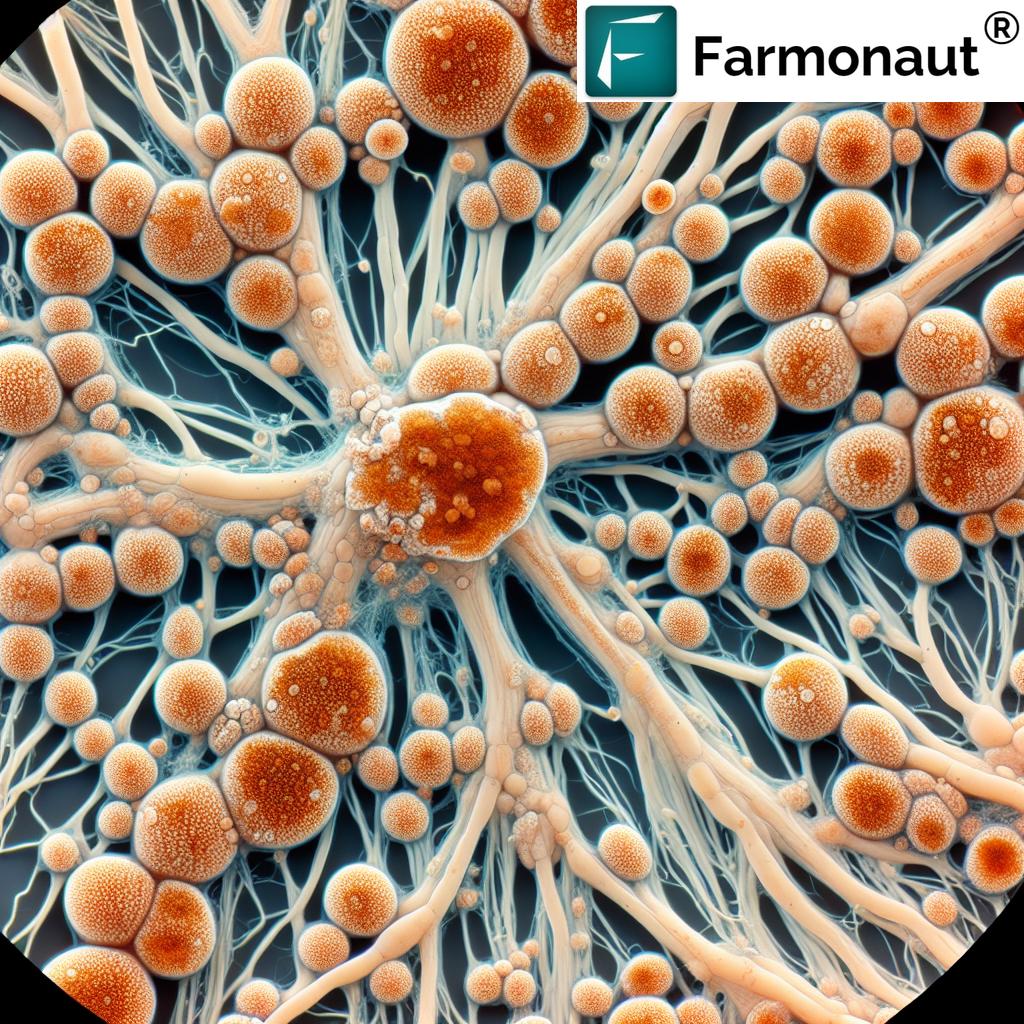





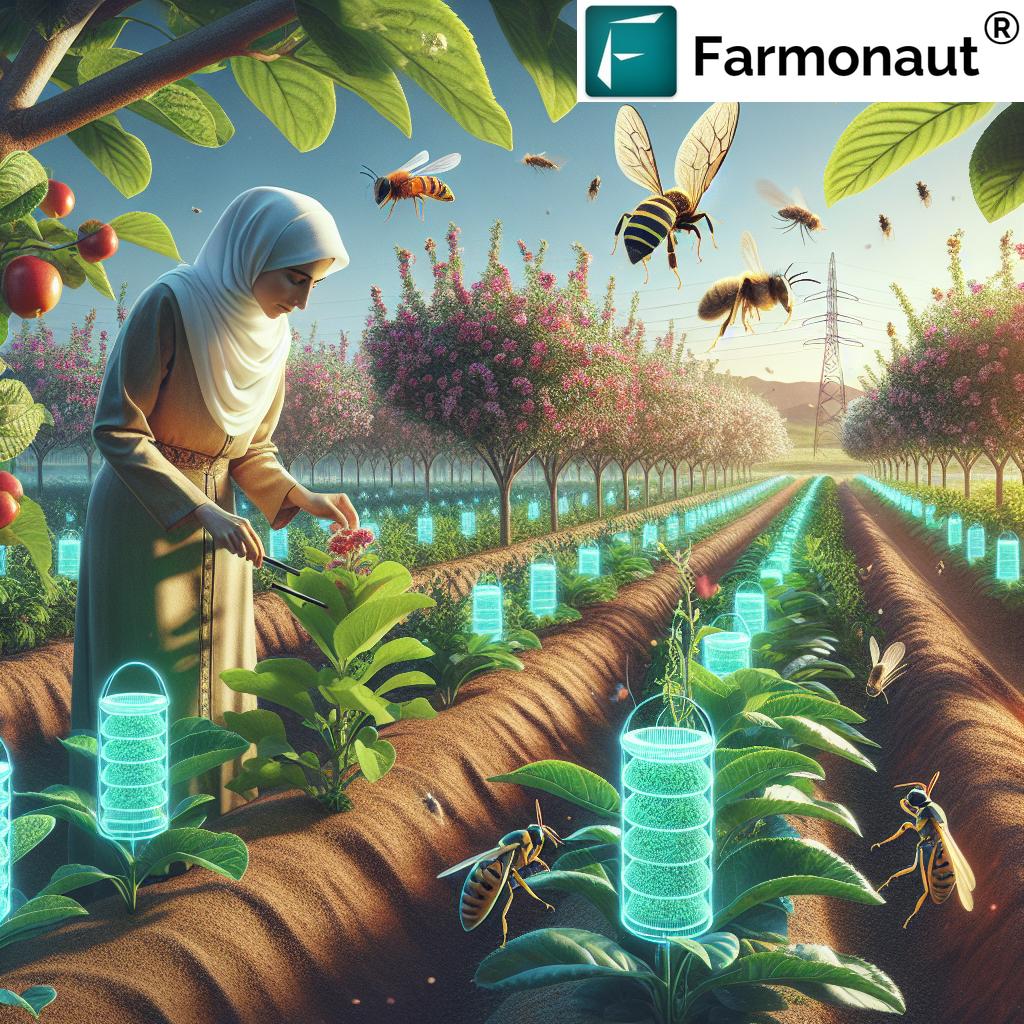
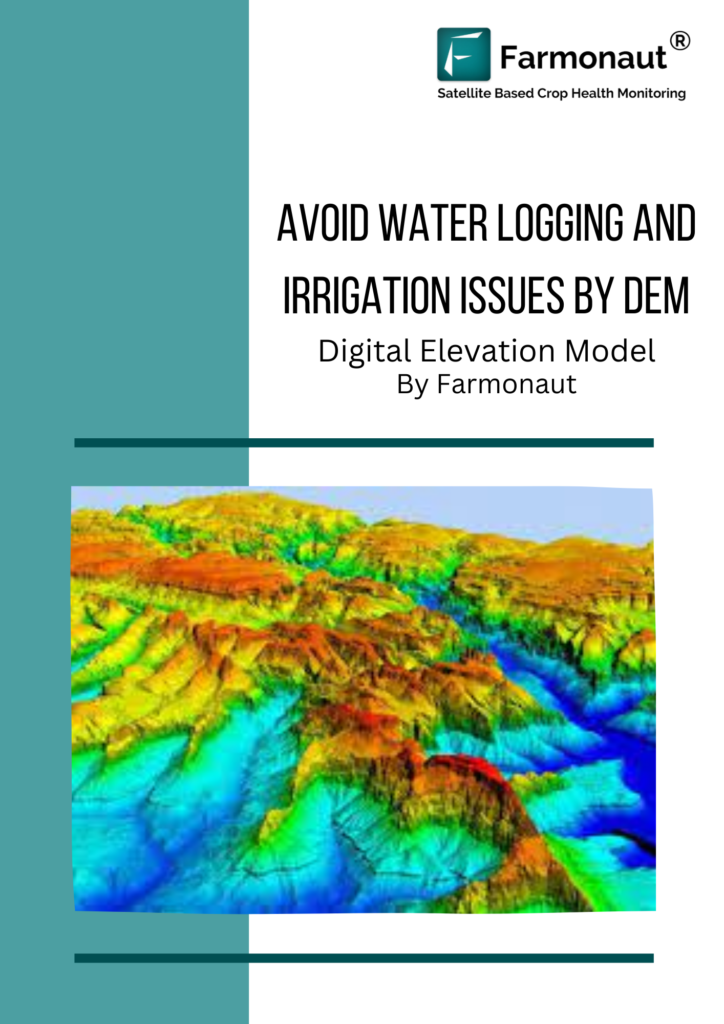


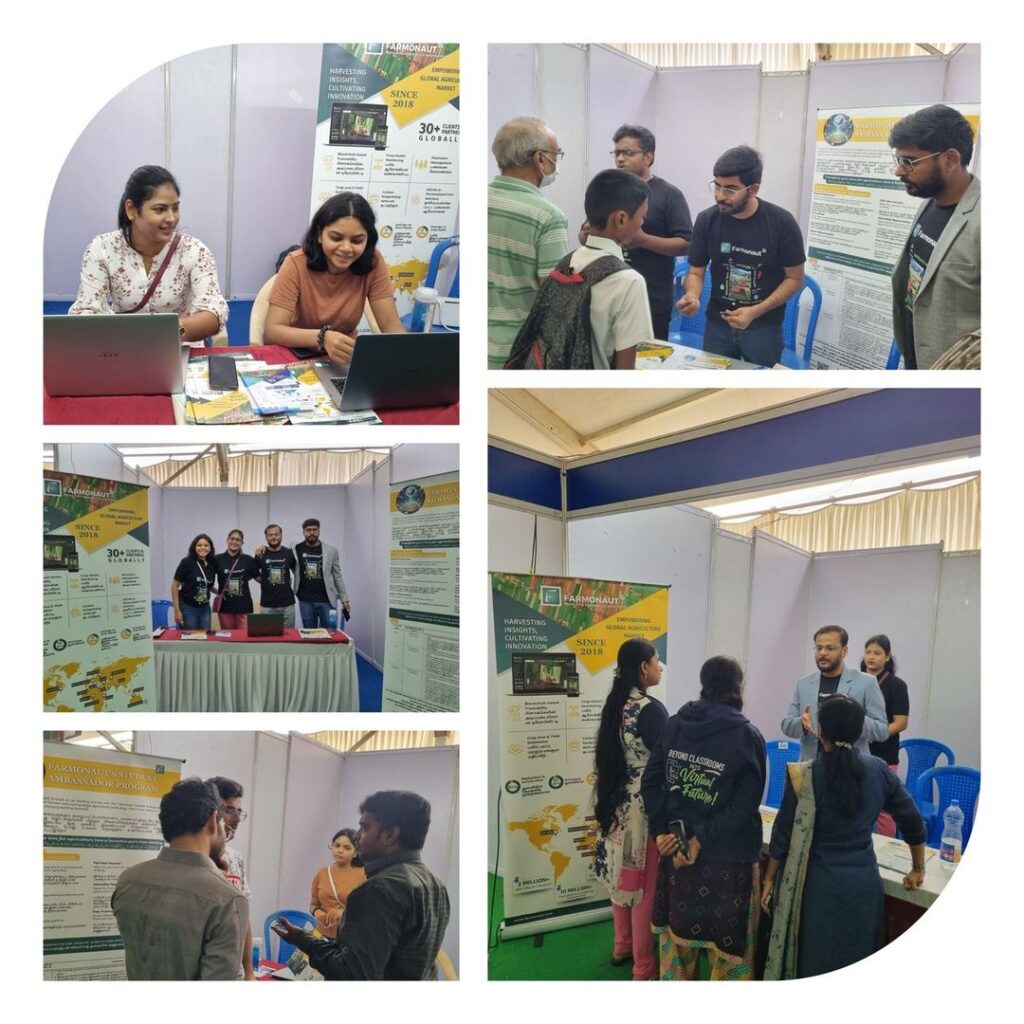
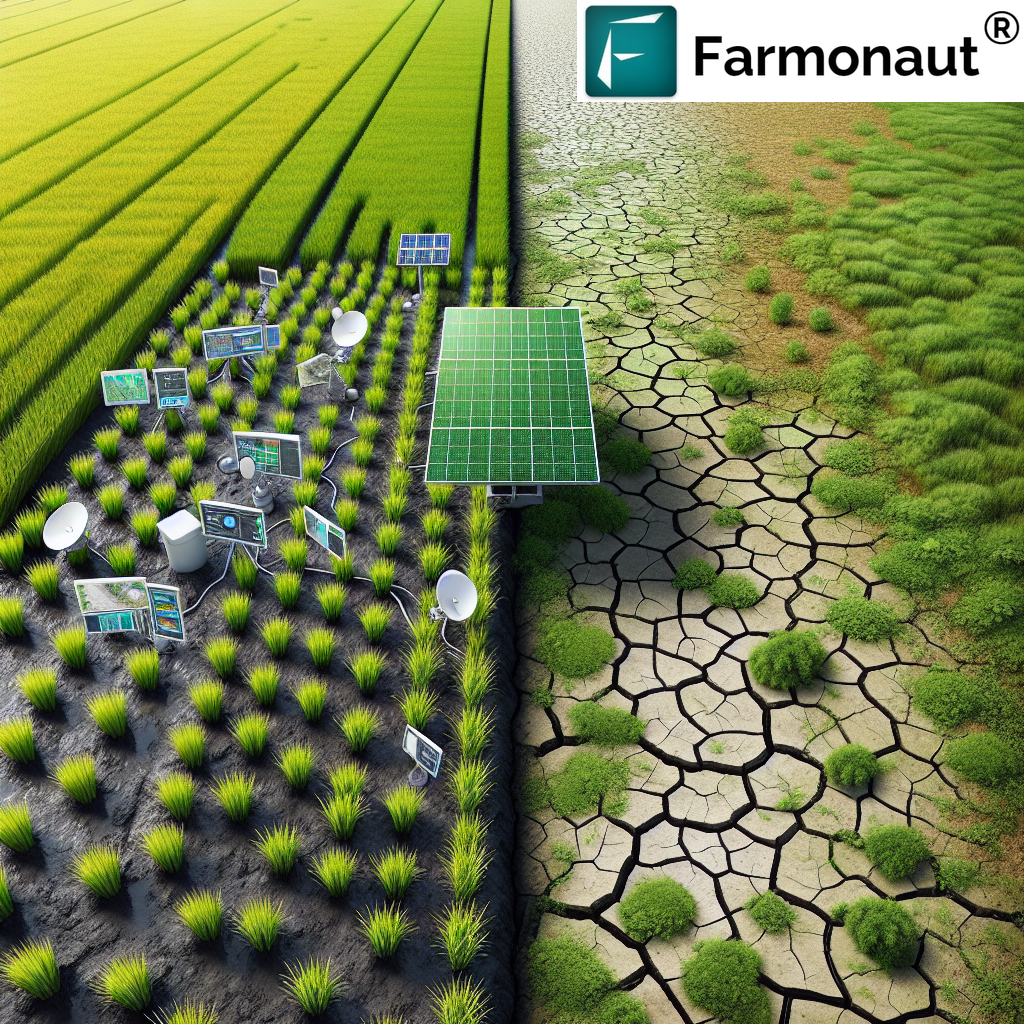
In this blog, discover effective strategies to eliminate bugs and pests on citrus trees, ensuring healthy growth and fruit production while maintaining the vitality of your garden.